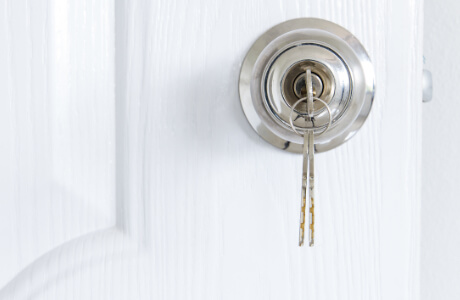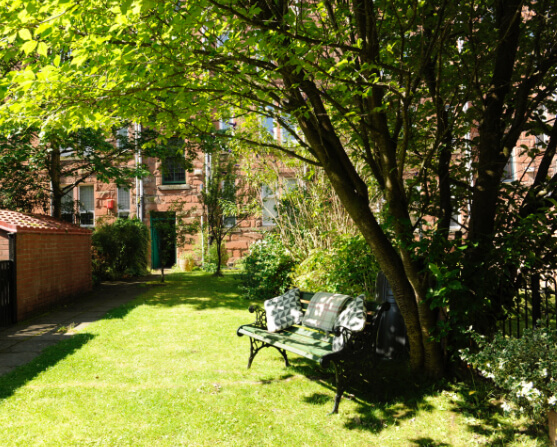The Hidden Costs Of Being A Landlord
Being a good landlord is about more than collecting rent. You have to plan for the unexpected. Here, AXA reveals the hidden costs of being a landlord.
You’re almost ready to rent out your first property – it’s an exciting time, and hopefully the start of a profitable new venture. Before you hand over the keys, take a step back and make sure you’ve covered all the bases.
The key to being a successful landlord is to plan for and expect the unexpected. So here’s our guide to the hidden costs and common pitfalls of property rental.

Set-up costs
It seems like a simple sum: cost of rent minus cost of mortgage minus tax equals net rental income. However, there are more costs to take into account when you’re starting out as a landlord. Watch out for these hidden costs, and you’ll have a far more focused approach to your new business.
Agency fees
Most agencies charge around 10-15% for a full management service, which involves taking most of the daily running of the property out of your hands. A letting-only service can cost less; however you may feel it’s a better economic use of your time to engage a full management service.
Watch out for extra agency costs. These can include inventory writing, repeat fees and a commission if you end up selling the property to the tenant, so always read the contract carefully.
Fire safety
Don’t forget to install a smoke alarm on each floor, and if you have a solid fuel burning appliance (such as an open fire or woodburner) provide a carbon monoxide alarm for that floor.
If your property is let as a House in Multiple Occupation, you have additional fire safety responsibilities, such as providing fire extinguishers. Speak with your local fire service before letting out any rooms, and check with your insurer that items like woodburners are covered in your landlord insurance policy, to make sure you’re keeping your property as safe as, well, houses.
Safety certification
There are several safety certificates you must arrange before your first tenants move in. If your property has gas, this will need inspecting and certifying annually by a Gas Safe registered engineer. You also must have an electrical safety inspection, carried out by a qualified person. Any portable appliances (white goods, lamps, electric heaters) need to be “PAT” tested. It’s also a legal requirement to have an Energy Performance Certificate, which looks at areas such as heating and insulation.
Landlord association costs
If you join a landlord association, they will run the tenant checks for you for a small cost; however, you will have to pay the association’s fees. The biggest organisation is the National Landlords Association, and annual membership currently starts at £89. In Scotland, there’s the Scottish Association of Landlords which starts at £100. As the law is different in Scotland, it’s worth joining a dedicated Scottish group.
We’ve written previously about the advantages of joining an association; if you’re new to property letting, you’ll find their resources helpful, from lawyer-approved templates to how-to guides. It’s also a welcome sign of accreditation to prospective tenants.

Private landlord costs
There are several safety certificates you must arrange before your first tenants move in. If your property has gas, this will need inspecting and certifying annually by a Gas Safe registered engineer. You also must have an electrical safety inspection, carried out by a qualified person. Any portable appliances (white goods, lamps, electric heaters) need to be “PAT” tested. It’s also a legal requirement to have an Energy Performance Certificate, which looks at areas such as heating and insulation.

Advertising costs
A real advantage of using an agency is that they’ll take care of the marketing for you. If you’re going it alone, you’ll need to budget for advertising. You can use a website such as OpenRent and post on relevant social media pages without breaking the bank (or even use an old-school approach and advertise in local papers and shops).
One area where it pays to spend is photography. We recently found that good photography can actually add to the perceived value of a property by as much as 20%. So even if an image is just going up on your Facebook page or on a flyer, a professional looking photograph will really enhance the property’s appeal.

Ongoing costs
As well as one-off costs, there are, of course, ongoing costs. You’ll pay income tax, and it’s worth setting this aside monthly so the tax bill won’t feel like such a big sting. Agencies will take their percentage monthly, and you will probably choose to pay your residential landlord insurance by direct debit.
Other regular costs include maintenance, boiler servicing, building service charges if it is a leasehold property, and some landlords provide cleaning and gardening services (usually if there are communal areas).
Common issues to watch for
As well as the set-up and ongoing costs, there are always those extra issues that can sneak up and bite us. With a little risk management, you can mitigate many potential problems – or at least, know how to act fast if things do go wrong.
Here are some of the most common problems among Britain’s landlords.
It was just an accident
Wear and tear will happen and is completely understandable – after all, your property is now someone’s home. Expect minor stains on the carpet; however broken windows and damaged white goods are harder to deal with (you don’t want to suddenly pay out £300 for a new cooker).
While wear and tear may not be covered by your insurance policy, you should consider opting for accidental damage insurance which will help in cases of larger (and more expensive) damage. You should also ask for a deposit from your tenant, which acts as a deterrent and encourages care. You can guard against minor damage by adding a protective coating to carpets and soft furnishings, and protecting wooden floors with caster cups.
Water damage
This can be a biggie – but you can work to prevent it. Lag your pipes in winter, and regularly check for leaks and weaknesses. Simply replacing a burst pipe can cost £120, and that’s without dealing with any water damage to the property and fittings. Keep plumbed-in appliances such as washing machines in good order. Make sure there are no leaks coming in because of blocked gutters and drains, and guard against condensation damage by ensuring the property has good ventilation and extraction.
Make sure your tenants know where the stop-cock is. If you’re managing the property yourself (rather than using an agency for maintenance), find a reliable plumber that your tenants can contact in an emergency.
The good old British weather
You won’t have to provide a hurricane shelter in the UK, but you still should take our varied climate into account. The main issue in Britain is storm damage, which mainly affects the roof. Replacing the roof on a detached, two-storey house will cost over £8,000 (as well as associated disruption and redecoration costs). Other weather weak-points include conservatories and dormer windows.
Regular maintenance should keep you safe from typical winter winds, snow and hail – and this can be as straightforward as looking up at the roof once a month to check everything’s in place. In some cases, your insurer may ask for an inspection by a qualified individual to take place.
Electric fires
There are over 20,000 electrical fires in British domestic properties each year. Fire damage can be a difficult and distressing problem to solve, with the impact ranging from needing a new carpet to a complete renovation. Running the checks we’ve detailed above should ensure your wiring and electrical items are in safe condition – but it’s worth remembering that your tenants’ own items aren’t tested. It’s your property, so don’t hesitate to challenge any suspect-looking electrical items or activity you spot during property inspections, as in most cases your insurance may not cover fire or other damage caused by illegal activity.
Make sure there are a generous number of sockets to prevent tenants overloading plugs with adaptors and trailing sockets. If you still use halogen or incandescent lightbulbs, ensure your tenants know what wattage to use to prevent overheating.
Deliberate damage and vandalism
Breaking and entering can cause a lot of expensive damage to doors and windows, leaving you with an unsecured property, a huge bill (a new fitted uPVC front door will set you back around £500), and potentially the loss of a tenant. A visible alarm system, strong door and window locks and security lighting will act as a deterrent against more serious crimes.
In rare cases, damage can be caused deliberately by the tenant themselves. A thorough check, including landlord references, will help to minimise the risk of this, and protect you from taking on troublesome tenants.

Planning for the unexpected
Some of this may sound alarming; however sensibly preparing for hidden costs and unexpected events is the best way to achieve peace of mind as a new landlord. Here’s a simple checklist of measures you can go through to ensure your new venture runssmoothly:
Here's a simple checklist of measures you can go through to ensure your new venture runs smoothly:
- Get residential landlord insurance to cover a range of issues from a rebuild to temporarily re-housing tenants.
- Have a contingency fund for those unexpected costs – deep cleaning, redecoration, advertising for new tenants… Setting aside 30% of your gross annual rent is recommended, and also ring-fence funds for that January tax bill.
- Compile a list of trusted tradespeople your tenants can contact, especially in an emergency.
- Keep your paperwork in order, from certificates to tenant checks (and make sure these are kept in line with data protection regulations).
- Plan a maintenance timetable: for example, inspect the pipes and taps once a quarter, clean the gutters every two months, test the smoke detectors once a month.
If you're someone who's always dreamed about a career in property, you'll find all the information you need to get started in our Complete Guide to Being A Landlord.